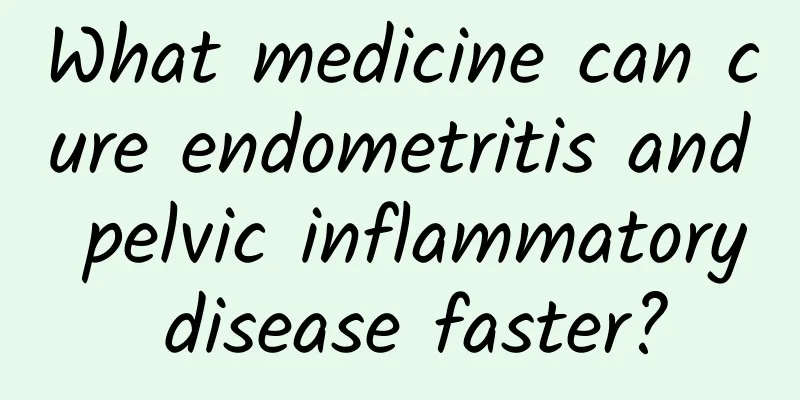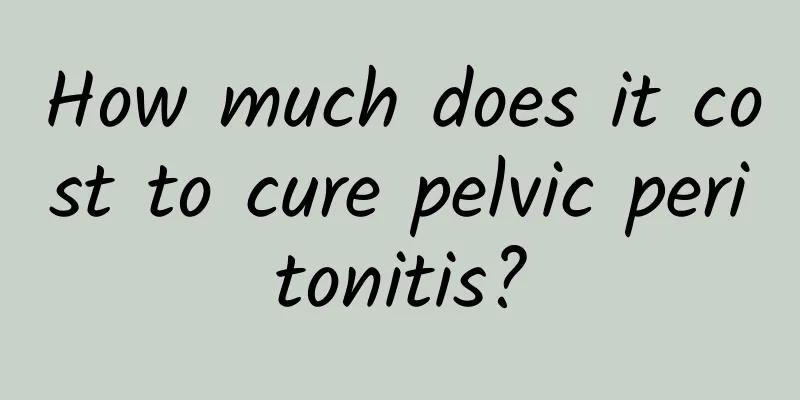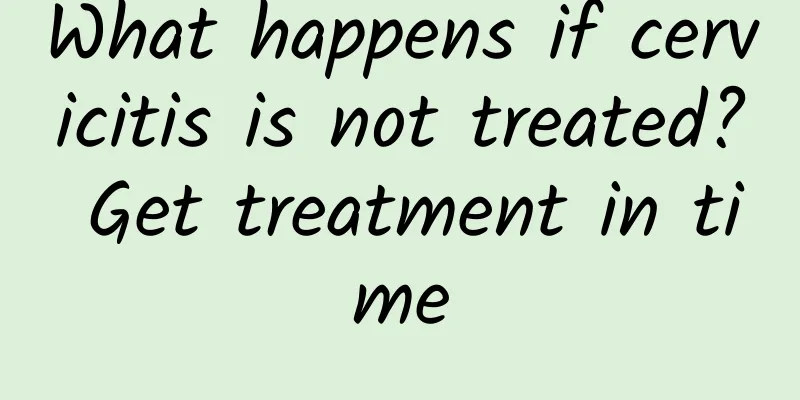What medicine can cure endometritis and pelvic inflammatory disease faster?

|
Endometritis and pelvic inflammatory disease can be treated with drugs to speed up recovery, mainly including antibiotic treatment, anti-inflammatory drugs and auxiliary medications. Specific drugs need to be selected and used under the guidance of a doctor, and combined with a healthy lifestyle to promote recovery. 1. Antibiotic treatment Endometritis and pelvic inflammatory disease are usually caused by bacterial infections, so antibiotics are the main treatment. Common medications include: -Cephalosporin antibiotics: such as ceftriaxone, are suitable for a wide range of bacterial infections and are usually used in combination with other drugs. -Metronidazole: Effective against anaerobic infections and often used as an adjunctive treatment. -Levofloxacin: It has a broad-spectrum antibacterial effect, especially for complicated pelvic infections. The course of antibiotic treatment is generally 7-14 days. The specific dosage and time need to be adjusted according to the severity of the infection and the patient's physical condition. Do not stop the medication on your own to avoid recurrence or aggravation of the disease. 2. Use non-antibiotic medications In addition to antibiotics that kill bacteria directly, anti-inflammatory drugs and analgesics may also be used to relieve inflammatory symptoms and improve the patient's quality of life: - Anti-inflammatory drugs: such as naproxen or ibuprofen, can eliminate local inflammatory reactions and relieve pain. -Assisted by Chinese patent medicines: such as Guizhi Fuling Pills and Jingangteng Capsules, which can help promote pelvic blood circulation and relieve inflammation and stagnation. Please note that it is not recommended to use Chinese patent medicine alone to treat serious infections; it should be used in combination with antibiotics. 3. Auxiliary treatment based on individual circumstances In addition to drug treatment, daily care is also an important part of recovery: -Pay attention to hygiene: Keep the vulva clean to avoid the spread or recurrence of infection. -Dietary adjustment: Eat more foods rich in vitamin C (such as kiwi and citrus) to increase the body's immunity; protein foods (such as fish, eggs, and milk) help tissue repair. -Moderate exercise: Avoid strenuous physical activity during the recovery period. You can choose to take a walk or do simple stretching to help pelvic blood circulation. If the symptoms of endometritis and pelvic inflammatory disease worsen or do not improve for a long time, you need to return to the hospital for a follow-up visit. Comprehensive examinations in advance, correct medication, and standardized treatment are the key to recovery. |
<<: What symptoms are considered serious for pelvic effusion?
>>: Is cervical erosion contagious?
Recommend
What are the precautions during painless abortion surgery?
Many women who are pregnant for the first time ha...
What are the clinical manifestations of vulvar leukoplakia?
What are the clinical manifestations of vulvar le...
How is a molar pregnancy diagnosed?
How is hydatidiform mole diagnosed? Hydatidiform ...
How to treat premature ovarian failure? 6 commonly used treatments for premature ovarian failure
Premature ovarian failure is one of the common di...
Is laparoscopic surgery possible for ectopic pregnancy? The effect will be better
The incidence of ectopic pregnancy is very high n...
Mermaid line coach Zheng Xinyu practices heart rate aerobics at home
Zheng Xinyu, the mermaid line coach who became fa...
Causes of cervical precancerous lesions in daily life
We must actively grasp the causes of cervical pre...
Let’s take a look at the symptoms of early uterine fibroids.
Uterine fibroids are a common disease in life. In...
Can women with cervical erosion eat chili peppers? Introduction to the daily diet principles for women with cervical erosion
There are many medical treatments for cervical er...
8 signs that you may have a miscarriage
There is no such thing as eight symptoms indicati...
How much does a one-time surgery for endometrial hyperplasia cost?
How much does the surgery for endometrial thicken...
To create round and firm breasts, try the modified version of the knee push-up
Do you always have no confidence in wearing cloth...
What are the reactions of women taking abortion drugs? Women taking abortion drugs will have these reactions
Medical abortion is the most common method of abo...
What should you pay attention to in your diet after cervical precancerous lesions surgery?
We all know that cervical precancerous lesions ar...
How to check for vaginitis
How to check for vaginitis? Vaginitis requires ex...









